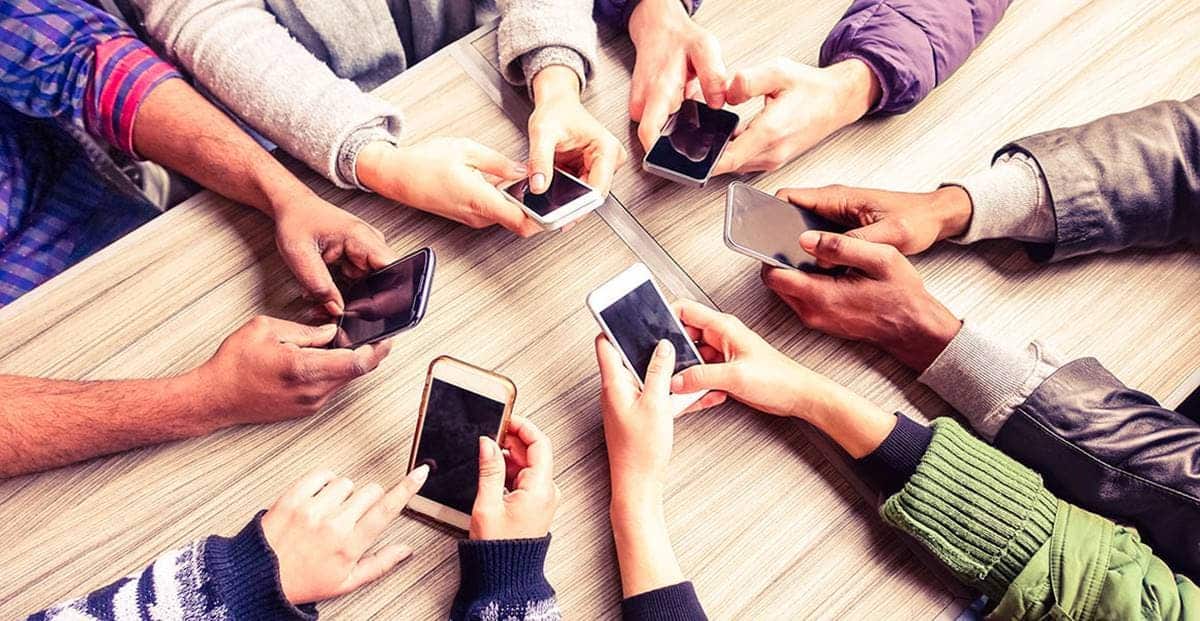It’s hard to picture a day without our mobile phones because they have become such a vital part of our life. We depend on our mobile phones for several functions, from managing our daily routines to staying in touch with loved ones. Sadly, this reliance can develop into an addiction, which can harm our social life, work, and mental and physical health. Hence, knowing how to manage a cell phone addiction is crucial.

Few ways of dealing with mobile phone addiction
Here are some ways to help you manage your mobile phone addiction:
-
Recognize the Problem
The first step in dealing with mobile phone addiction is recognizing that there is a problem. Mobile phone addiction can manifest in various ways, including checking your phone frequently, using your phone while driving or in social settings, and feeling anxious or agitated when separated from your phone. Acknowledging that you have a problem is the first step towards addressing it.
-
Set Goals and Limits
Once you’ve found the issue, it’s time to set goals and limits for your mobile phone use. Begin by looking at how much time you spend on your phone each day, as well as which apps you use the most. Then, make smart goals and limits for your phone use. You may, for instance, restrict when you use your phone to specific times of the day. Also, try to make use of a few apps or even set a timer.

-
Create a Phone-Free Zone
Creating a phone-free zone in your home or workspace can help you reduce your phone usage. Designate a specific area in your home or workspace where you’re not allowed to use your phone. This can be a table or a corner where you can read, meditate, or relax without any distractions from your phone.
-
Prioritize Real-Life Interactions
Mobile phone addiction can lead to a lack of real-life interactions and social isolation. Therefore, it’s important to prioritize real-life interactions with friends, family, and colleagues. Make plans to meet in person, attend social events, or engage in outdoor activities that don’t involve phone usage. This can help you develop stronger social connections and reduce your dependence on your phone.
-
Turn off Notifications
Notifications can be a significant source of distraction and can trigger your phone addiction. Therefore, it’s advisable to turn off notifications for non-essential apps or mute your phone during important meetings or social events. This can help you stay focused and present at the moment.

-
Practice Mindfulness
Mindfulness can be a powerful tool in dealing with mobile phone addiction. Mindfulness involves being present at the moment, observing your thoughts and emotions without judgment. Practising mindfulness can help you become more aware of your phone usage and its impact on your mental and physical health. You can start by taking a few minutes every day to practice mindfulness meditation or deep breathing exercises.
-
Seek Professional Help
If you’re struggling to manage your mobile phone addiction, seeking professional help can be beneficial. A mental health professional can provide you with tools and strategies to help you manage your addiction and develop healthy habits. They can also help you address any underlying mental health conditions that may be contributing to your addiction.
Conclusion
There are ways to deal with mobile phone addiction, but it can have a huge negative impact on your life. You may manage your phone addiction and reduce your phone usage by accepting the issue. Then set goals and limits, create a phone-free zone, focus on in-person contacts, shut off notifications, meditate, and get professional help. You can take control of your mobile phone usage and enjoy a better, more happy life by using these tactics.





